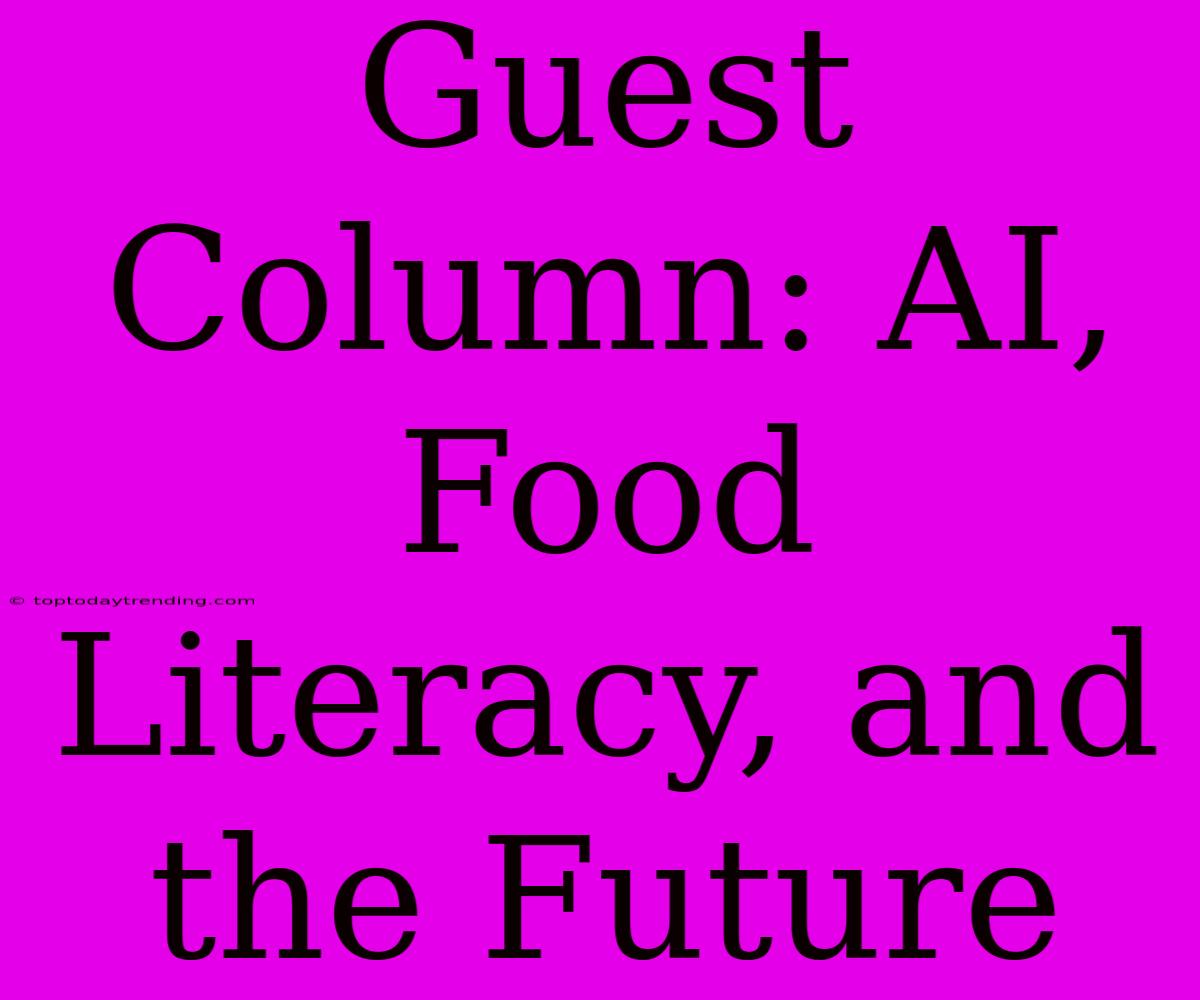Guest Column: AI, Food Literacy, and the Future
The way we consume food is changing rapidly. From farm-to-table movements to the rise of plant-based alternatives, the food landscape is dynamic and constantly evolving. Now, a new force is entering the scene: artificial intelligence (AI).
AI's impact on food is already being felt in various ways:
- Personalized Nutrition Plans: AI can analyze dietary habits, health data, and personal preferences to create tailored nutrition plans that cater to individual needs. Imagine an app that suggests recipes based on your allergies, fitness goals, or even your mood!
- Precision Agriculture: AI can optimize crop yields by analyzing soil conditions, weather patterns, and even pest infestation risks. This can lead to more efficient farming practices and a reduction in food waste.
- Food Safety and Quality Control: AI-powered systems can monitor food production processes, detecting potential contamination or quality issues in real-time. This ensures safer food products and reduces the risk of foodborne illnesses.
- Sustainable Food Systems: AI can help develop more sustainable food systems by optimizing resource utilization, reducing waste, and promoting responsible consumption patterns.
However, the potential of AI in the food system is far from fully explored. The future holds exciting possibilities, particularly in the area of food literacy:
1. AI as an Educational Tool: AI can create interactive and engaging educational resources that make learning about food more accessible and enjoyable. Imagine virtual reality tours of farms, personalized nutrition quizzes, or AI-powered cooking assistants that guide you through recipes.
2. Empowering Consumers with Information: AI can empower consumers with access to vast amounts of information about the food they consume, from origin to nutritional value. This can help build informed choices and encourage a more conscious approach to food consumption.
3. Promoting Food Security and Equity: AI can play a vital role in addressing food insecurity by optimizing food distribution networks, predicting food shortages, and developing innovative solutions for food production in challenging environments.
The Future of Food Literacy:
The future of food literacy is inextricably linked to the development and responsible implementation of AI. It's crucial to ensure that AI-powered tools are accessible, equitable, and empower individuals to make informed choices about their food.
Challenges and Considerations:
While AI holds great potential, it's essential to consider the ethical and practical implications:
- Data Privacy and Security: Ensuring the privacy and security of food-related data is crucial to avoid potential misuse or exploitation.
- Bias and Discrimination: AI algorithms must be carefully designed to prevent bias and ensure equitable access to information and resources.
- Accessibility and Inclusivity: AI tools must be accessible to everyone, regardless of background or socioeconomic status.
Conclusion:
AI has the potential to revolutionize the way we consume food and foster a deeper understanding of food literacy. By embracing this technology responsibly and ethically, we can create a future where food is more sustainable, accessible, and empowering for everyone.

